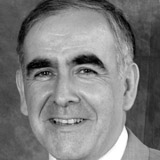 One of the pleasures of academic medicine, and a salve for the gentle disorganisation of Irish medical schools, is the initiative, enthusiasm, and broad ranging interests of the medical students and trainees. A recent taste of this was a play on anorexia from the Edinburgh Fringe Festival hosted by medical students at Trinity College Dublin.
One of the pleasures of academic medicine, and a salve for the gentle disorganisation of Irish medical schools, is the initiative, enthusiasm, and broad ranging interests of the medical students and trainees. A recent taste of this was a play on anorexia from the Edinburgh Fringe Festival hosted by medical students at Trinity College Dublin.
Last week was the turn of students in another medical school, University College Dublin (UCD), along with trainees from the College of Psychiatrists in Ireland. This was the second Irish engagement with MedFest, a festival of medical cinema organised by trainees in psychiatry, supported by the Royal College of Psychiatry in the UK.
Reflecting the theme of “medicine from the cradle to the grave,” our panel also included a paediatric gastroenterologist, a liaison psychiatrist, a general psychiatrist, and a psychologist with extensive research expertise on bullying. Six short films or extracts were shown in three pairs, each followed by a panel and audience discussion.
Packed to capacity, and sustained by wine and pizza, the evening was a blast, with a mix of cinematic styles as varied as the content. A movie from multiple animators started the evening, a frantic and almost dizzying race through a personal evolution of bullying, from its origins to the pain persisting into later life.
Razor sharp imagery, rapid shifts, and defiantly bright colours effectively counterpointed the pain of the narrative, preventing slippage into self pity and bathos. The title, To This Day, captured the interlinkages of various stages of life running through the evening.
The next film, linking a US 1940’s public service documentary with the slick intercut shots and iconic imagery of contemporary advertising for polio vaccination, was the odd one out of the evening.
In the final four films our menu switched from kitchen sink cinema verité documentaries (recovery from psychosis and Alzheimer’s disease) to dramatic treatments more reminiscent of Jerry Bruckheimer and the Coen brothers respectively (psychiatric engagement in an armed stand-off and development of an artificial heart).
These stylistic contrasts sparked interesting discussion, the sheer ordinariness of the documentary format with their aesthetically challenging settings and presentation forcing our focus onto real life in a manner reminiscent of the magisterial Death of Mr Lazarescu.
Indeed, a clear message came through of our need to shift our attention more to recovery phases of illness, an area of expertise of one of the panellists. The cruel compromises of institutional respite care for those with dementia also shone through in the alternately humorous and moving piece on Alzheimer’s. That the director was a family member raised discussion points over consent, reminiscent of those raised for and against The Iron Lady.
Ethics also spilled into the action packed and tense Dr Easy, where a robot psychiatrist was used to engage with the suicidal and wounded man at the heart of a police siege. The video feed from the robot’s “eyes” to the police was seen as professionally troubling in the interchanges.
There was also a general sense of loss of humanity in using the robot, further discussed in the context of what we lose when we play it safe. Resonance and contemporariness were also noted in the juxtaposition of MedFest with the release of two major movies on humans and machines, the new Robocop, and the romance between Joaquin Phoenix and a computer in Her.
The final movie, Flatline, was all about risk taking, a mix between Breaking Bad and the Coen brothers (one expected John Goodman to appear at any moment!) about two Texas surgeons developing a new heart pump. With sharp editing, talking heads, and scenes of handmade work in a garage, the truly heart stopping fact was how the patient at the centre was reduced to a cipher, exclusively through still images.
Several aspects struck me as we exited, stimulated and in a hubbub of talk. For all the deep and wonderful insights of literature, it is increasingly clear that the cinema is the medium with the widest reach and the greatest promise of a common language in the medical humanities.
I was also struck by the impact of the panel and audience discussion, a mingling of experience, insights, and vulnerabilities that united students and senior clinicians in a way that invoked collegiality without formality—the contributions of each person in the room had a validity not encountered in the usual didactic settings.
The lasting impression, however, was the focus on the peculiar mix of pain and vitality that permeates the life course, shared through and across generations, on celluloid and away from it. From the durable ache of bullying, through the silent but worried look of the father of the man with the psychosis, to the generations engaging with dementia, it still hurts. Events like MedFest open our hearts and minds to respond accordingly.
Des O’Neill is a consultant in geriatric and stroke medicine and director of the Irish National Programme Office for traffic medicine.
